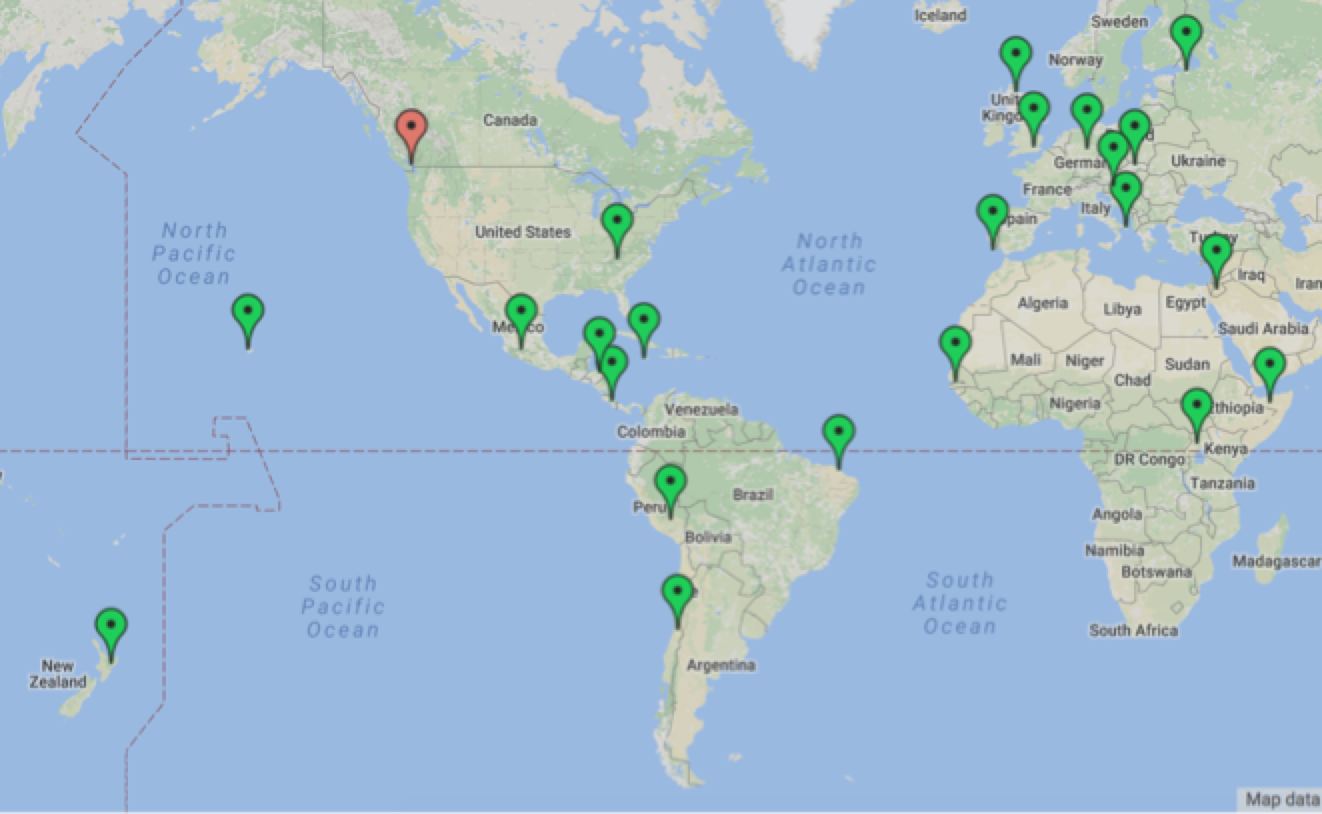The EarthCARE community consists of educational practitioners from a diverse range of locations, both geographically and in relation to the challenges and crises they are confronting. They have identified the problem that the prevalence of cognitive, affective, relational and economic injustices prevent even very ‘innovative’ forms of contemporary innovation from learning from and contributing to the growth of genuinely alternative practices. This initiative developed in the context of a collaboration between the research project “Social Innovation for Decolonial Futures” funded by the Social Sciences and Humanities Research Council of Canada (led by Dr. Vanessa Andreotti), and the “Ecoversities network” (hosted by Dr. Kelly Teamey and Dr. Udi Mandel).
The EarthCARE community is growing and welcomes new participants. Below is the original list of institutions and people who contributed to the first draft of the framework.
| CEPROSI
Centre for the Promotion of Intercultural Knowledges |
Holistic education and community building based on Indigenous Andean Knowledge Systems. | Elena Pardo and Ronald Espinoza | Peru |
| Free Home University | Collaborative artistic and pedagogical project through radical thought, coalitional knowledge production and experimental actions, learning-by-doing. | Alessandra Pomarico / Nikolay Oleynikov | Italy/Russia |
| Gorca eARTh CARE | Earth-centered, intergenerational, experiential global education project. | Rene Susa | Slovenia |
| Digital Hargeisa | Incubation, innovation and co-creation space in Hargeisa dedicated to creating sustainable change. | Khadra Ali | Somaliland |
| Escuela Campesina/CIET | Re-integration of body/mind, emotion/spirit, and socioenvironmental regeneration through a decolonial, intercultural, transmodern, transdisciplinary and transparadigmatic orientation. | Josefina Guzmán and Carmen Ramos | Mexico – Michoacan |
| Mesoamerikaab – EPAS | Alternative rural sustainable development based on social justice, local knowledge and respect for human rights. | Juana Esperanza Esquivel Urbina | Honduras |
| Enlivened Learning | Animated learning spaces where knowledge and learning are not being pursued for market-based profit market but rather offer new stories of hope, imagination and possibility. | Udi Mandel and Kelly Teamey | Costa Rica |
| Mycelium/ Center For Convivial Research And Autonomy | Learning space for exploring the intersections between collective pedagogies, convivial research, and local capacity-building for relevant learning and meaningful action. | Kate Morales, Ashley Cooper, Manolo Callahan | USA |
| Zajezova Education Centre /Zivica | Integrative socio-ecological learning experiences in an eco-village setting focusing on learning to live and to breathe differently together. | Zuzanna Labasova and Vanessa Andreotti | Slovakia |
| OrlaDesign/Quinta do Vale da Lama | A collective of socially engaged designers and educators with a regenerative and holistic nature-based approach. | Hugo Oliveira / Xana Piteira | Portugal |
| EA University | Education with Aloha (EA) immersion in the environment, grounded in traditional Hawaiian pedagogy, cultural values and practices. | Ku Kahakalau | Hawaii |
| Verandah International University (VIU) | Verandah offers learning streams that revolve around the themes of Love, Community, Spirituality, Healing, Culture, and Nature. | Brandon Hay, Nicole Angela, Kisha Mcpherson | Canada/
Jamaica |
| Uniseres | Collaborative pluriversity advancing experiential global education through a decolonial orientation in collaboration with social movements, indigenous and quilombola communities in Brazil. | Bill Calhoun | Brazil |
| Up the River | Experiential socio-ecological learning drawing on Maori ways of knowing and being in collaboration with Te Whare Wānanga o Awanuiārangi. | James Hireme | Aotearoa New Zealand |
| Gaia U Latina | Innovative, blended learning experiences to support the transition to a regenerative livelihood, taking sustainable practices to the next level. | Javiera Carrion and Grifen Hope | Chile |
| Taghmees social kitchen | Combining the ingredients of people, food, and fabric to engage in community learning that honors people’s lived experiences. | Dina Bataineh | Jordan |
| The Social Innovation Academy/ Mpambo Afrikan Multiversity/ | Learning space for building energies and capacities for participatory processes to co-create and celebrate social innovation and indigenous Afrikan cultural practices. | Etienne Salborn/ Paolo Wangoola | Uganda |
| Findhorn College | Transformative education for sustainability and personal empowerment. | Vera Franco | Scotland |
| Global Hands Manduar | Learning space bringing together scientific innovation, disruptive pedagogy and participatory approaches to alternative development. | Momodou Sallah | Gambia |
The development of the text was coordinated by Prof Vanessa Andreotti, Dr. Sharon Stein and Dr. Sarah Amsler, in close consultation with the wider EarthCARE community.

